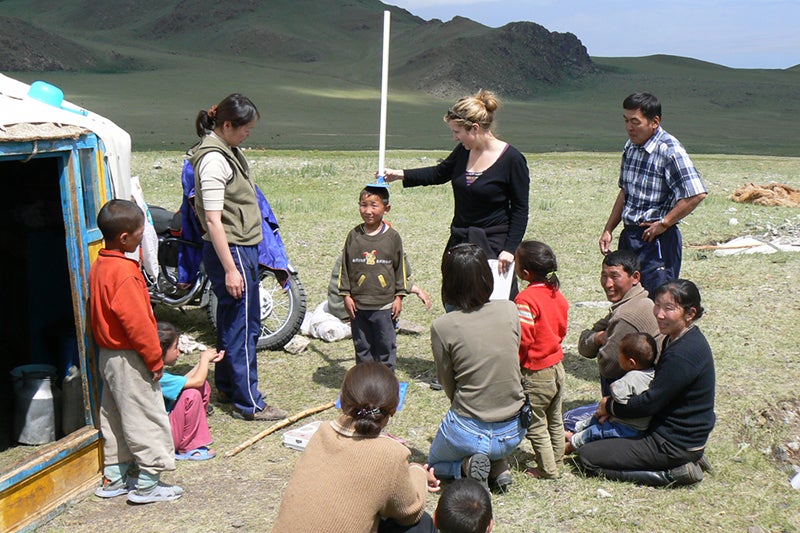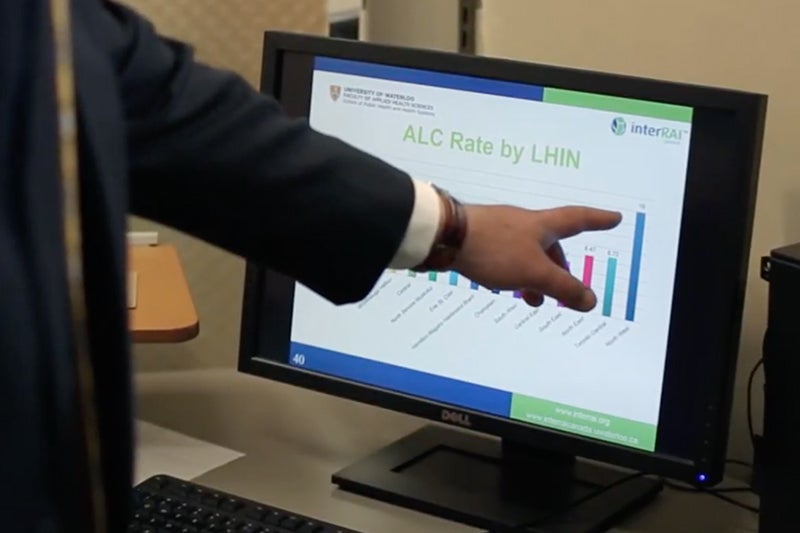Graduate studies at the forefront of health research
In the School of Public Health Sciences, our researchers are working to reduce the global burden of illness through health promotion, disease surveillance and implementation of healthy public policy.
Our research, education and training aims to solve significant local, provincial, national and international challenges in public health and health sciences.


Master of Health Evaluation
- Coursework-based, online
- 4 terms | 11/3 years (Full-time)
- 10 terms | 31/3 years (Part-time)
- 7 required courses + 2 elective courses
- 420 hour practicum placement

Master of Health Informatics and Analytics
- Coursework-based, online
- 4 terms | 11/3 years (Full-time)
- 10 terms | 31/3 years (Part-time)
- 7 required courses + 2 elective courses
- 420 hour practicum placement

Master of Public Health
- Coursework-based, online
- 6 terms | 2 years (Full-time)
- 12 terms | 4 years (Part-time)
- 9 required courses + 2 elective courses
- 2 on-campus experiences: foundations course and capstone presentation
- 12-16 week 420 hour practicum placement in a public health setting
Thesis-based graduate programs

MSc in Public Health Sciences
- Research-based, on campus
- 6 terms | 2 years (Full-time)
- 15 terms | 5 years (Part-time)
- Master's thesis
- Collaborative water specialization also available

PhD in Public Health Sciences
- Research-based, on campus
- 12 terms | 4 years (Full-time from Master's level)
- 24 terms | 8 years (Part-time from Master's level)
- Doctoral thesis
- Collaborative water specialization also available

Collaborative PhD in Aging, Health, and Well-being
- Research-based, on campus
- 12 terms | 4 years (Full-time from Master's level)
- 24 terms | 8 years (Full-time from Master's level)
- Doctoral thesis
Grad life from a grad perspective
Over a period of time during their studies, we asked graduate students to take footage of their lives. These short one-minute videos showcase graduate student life here at Waterloo.
Danielle Brandow (MSc Public Health Sciences) investigated the links between contaminant exposure, nutritional status, and food use in First Nation and Metis communities in the Northwest Territories.

When Wilfrid Ntiamoah discovered that Waterloo offered remote courses for its Master of Public Health (MPH) program, he was keen to apply. He credits graduating from the MPH program as a having a direct impact on his current role as director of population health in Qikiqtaaluk, Nunavut.
Your future
Our graduate students go into academic research positions and assume professional and leadership roles in many areas of health
including health promotion, health planning, policy and health information analysis, research management healthcare coordination, epidemiology and program evaluation.
Why Waterloo?
Canada's most innovative university for over a quarter of century, the University of Waterloo is a global leader for hands-on, experiential learning and comprehensive research. Our one-of-a-kind entrepreneurship ecosystem is fueled by our creator-owned intellectual property policy and our full spectrum of support.